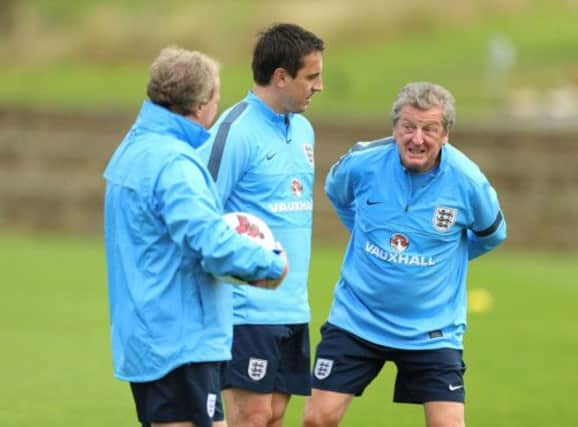England - Scotland divide greater than ever


But the domestic games in each country exist on different planets, and this partly helps explain the stark contrast in the way in which this week’s first England v Scotland clash of the millennium is being treated on both sides of the Border.
You only need to look at newspapers in England. While once they might have looked to Scotland for a moderate percentage of their football news, now the pages are filled with reports from La Liga, the Bundesliga and Ligue 1 in France.
Advertisement
Hide AdAdvertisement
Hide AdScotland is an afterthought – and probably not even that. Bobby Charlton once spoke of how, when those in the north-east of England referred to the “cup final”, they meant the one taking place at Hampden Park rather than Wembley. It is hard to imagine this could possibly be the case now, even though both showpiece occasions have now lost their lustre, and are played on separate weekends.
The point is that the match on Wednesday is designed to mark the 150th anniversary of the Football Association. And never in this time frame has there existed such a gulf between the league set-ups in both countries.
Tragically, there is a danger that even Scots themselves might be more attracted by what is going on down in England than in Scotland, something that the decision to re-brand the Scottish leagues using terminology associated with English football rather lamentably appears to want to tap into. Living next door to a league that has exploded to the extent that the Premiership/Premier League has is often cited as being one of Scottish football’s greatest misfortunes. It can’t hope to compete with the razzmatazz down south, even if the product is not always as high quality as they would have us believe, as the Community Shield proved yesterday.
But it is still a remorseless story-producing machine. Indeed, it is difficult for anyone not to be seduced by the multi-million transfer shenanigans that are a feature of English football at present. How can Scotland hope to compete with the soap opera of a high-profile player such as Wayne Rooney being wooed by Jose Mourinho while David Moyes remains grimly determined to stand his ground? And then there is Luis Suarez, exiled on Anfield Road. Gareth Bale, meanwhile, is lined up with a world record-breaking move to Real Madrid.
Scotland has its own soap opera of course, but the daily round of spivvy in-fighting at Rangers won’t attract any youngsters to the game, sadly. Indeed, it is only likely to help drive people away.
In Scotland, eyebrows are raised when Hibs sanction a £200,000 transfer. And this, remember, is fully 20 summers after Rangers broke the British transfer record to sign Duncan Ferguson from Dundee United for £4 million.
A Scottish football club has been involved in far more lucrative deals in the last few weeks, but Victor Wanyama and Gary Hooper are exiting the Scottish game for clubs in the bottom half of the Premier League. Kelvin Wilson, meanwhile, has decided to leave the champions, and potential Champions League group stage contenders, to continue his career in the Championship.
Darren Fletcher, the currently sidelined Manchester United and Scotland midfielder, admitted last week that there is “virtually no coverage of the [Scottish] game” down south. And he is in Lancashire, hardly a million miles away. In London, Scottish football feels even more disregarded, and, frankly, disrespected.
Advertisement
Hide AdAdvertisement
Hide AdRoy Hodgson named his England squad only six days prior to this week’s match, something which even Mark McGhee, the Scotland assistant manager, has admitted that he and Gordon Strachan were surprised about. Remarkably, Hodgson has never attended an England v Scotland fixture, despite having grown up in London. “I take this game for what it is: an important preparation game with regard to the more important qualifiers coming up,” he said last week. Hodgson was hardly helping whip up English enthusiasm for the match, amid reports that there are still more than 10,000 tickets left to be sold.
English football has its problems too, of course. Indeed, Coventry City’s travails are a stark illustration of this. And yet they have also just signed someone who might well be playing at centre half for Scotland at Wembley on Wednesday, which says it all.
Football has undergone seismic change since the times when England v Scotland was an annual clash to relish. This fixture has not been played by arrangement since before the advent of the Premiership era in English football. The three matches that have taken place since then were all thanks to the luck of the draw – at Euro 96 and then in a Euro 2000 play-off. The last goal scored by England at Wembley against Scotland prompted the Gazza dentist chair routine.
It has been that long. Whether it becomes an annual fixture remains to be seen, but judging from the vibes down south, it doesn’t seem top of their agenda. Over 90 minutes on Wednesday, Scotland may well compete – and compete well. But there is another battle that cannot hope to be won, and, in truth, it was lost long ago.